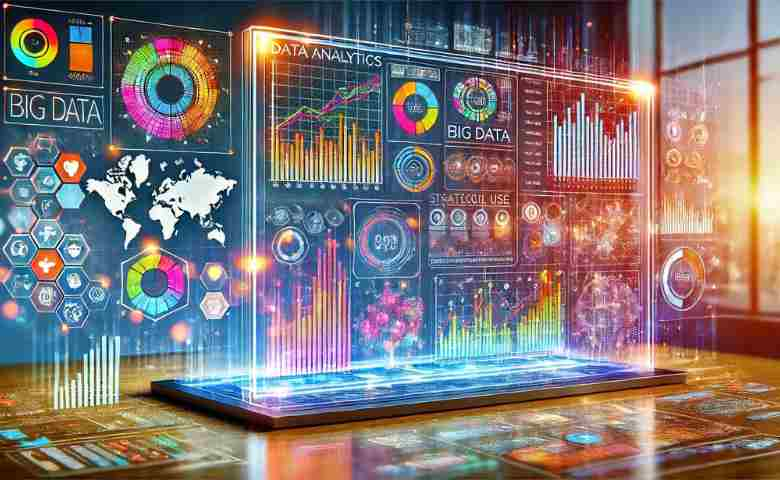Last Updated on October 14, 2024 by Admin
Data science is an area of study involving data analysis, machine learning, and computation to find useful knowledge from huge data sets. In today’s technologically advanced world, data is the new oil, and data scientists are the refinery workers that transform raw data into usable insight. The value of data science is increasing as businesses and organizations increasingly rely on data to make informed decisions, improve operations, and generate innovation. From predicting consumer behavior and improving healthcare outcomes to boosting cybersecurity and driving financial predictions, data science is at the core of modern technology.
Taking a PG in Data Science and Machine Learning is crucial for anyone looking to thrive in this data-centric landscape. Courses provide a structured learning path, covering essential topics such as data cleaning, exploratory data analysis, statistical modelling, and machine learning techniques. They also offer hands-on experience with tools like Python, R, and SQL, which are indispensable in the field. By completing a data science course, individuals gain the skills and knowledge needed to analyse complex datasets, develop predictive models, and provide data-driven solutions to real-world problems.
Table of Contents
What are some of the most trending data science domains that you must know?
Healthcare and Medical Research:
By analysing large datasets of genetic information, researchers can identify correlations between genes and specific health conditions, paving the way for targeted therapies. Clinical trials also benefit from data science, as machine learning algorithms can predict patient responses to treatments, thus optimising trial designs and accelerating the development of new drugs.
Financial Services and Banking:
In the financial services and banking sector, data science is a driving force behind innovation and efficiency. By analysing large datasets, financial institutions can gain deeper insights into customer behaviour, manage risks more effectively, and develop new financial products. One of the most significant applications of data science in banking is fraud detection. Machine learning algorithms analyse transaction patterns in real time, identifying unusual activities that may indicate fraudulent behaviour, thereby protecting both customers and institutions.
By analysing historical market data and leveraging predictive models, data scientists create algorithms that can execute trades at optimal times, maximising returns. Sentiment analysis of news articles and social media posts provides insights into market sentiment, helping traders make informed decisions.
Retail and E-commerce:
In the retail and e-commerce sector, data science is a game-changer, driving personalised customer experiences and optimising operations. By analysing customer data, retailers can gain insights into purchasing behaviour, preferences, and trends, enabling them to tailor their offerings and marketing strategies.
Supply chain optimisation is another critical application. Data science models can predict potential disruptions and inefficiencies in the supply chain, allowing retailers to take proactive measures to mitigate risks.
Telecommunications:
Data science is pivotal in improving network performance, enhancing customer experience, and driving innovation in the telecommunications industry. Telecommunications companies generate massive amounts of data from various sources, including call detail records, network logs, and customer interactions. Analysing this data helps optimise network operations and ensures reliable and high-quality service.
Network optimisation is a primary application of data science in telecommunications. Predictive analytics can forecast network traffic, allowing companies to allocate resources effectively and prevent congestion. Machine learning models detect anomalies in network performance, enabling proactive maintenance and reducing downtime. This leads to improved service reliability and customer satisfaction.
Customer churn prediction is another critical area. By analysing customer behaviour and usage patterns, data scientists can identify signals that indicate a customer is likely to switch to a competitor.
Transportation and Logistics:
Data science is transforming the transportation and logistics industry by optimising operations, enhancing efficiency, and improving customer satisfaction. The ability to analyse large datasets from various sources, such as GPS, sensors, and transaction records, allows companies to streamline their logistics processes and make data-driven decisions.
Route optimisation is one of the most significant applications of data science in transportation. By analysing traffic patterns, weather conditions, and delivery schedules, predictive models can determine the most efficient routes for vehicles, reducing fuel consumption and delivery times. This leads to cost savings and improved service reliability.
Energy and Utilities:
In the energy and utilities sector, data science is driving innovation and efficiency by enabling better resource management, optimising operations, and enhancing customer service. The integration of data science allows companies to analyse vast amounts of data generated from smart meters, sensors, and grid systems, leading to more informed decision-making.
One of the primary applications of data science in this sector is demand forecasting. Predictive analytics models analyse historical usage data, weather patterns, and economic indicators to forecast energy demand accurately. Sentiment analysis of customer feedback helps companies address concerns and improve service delivery.
Conclusion
The role of data science cannot be overstated in an era when data is a crucial driver of innovation and competitive advantage. As technology continues to evolve and generate ever-larger volumes of data, the demand for skilled data scientists who can interpret and leverage this information will only grow. Data science empowers businesses to harness the potential of big data, enabling more intelligent decision-making, enhanced efficiency, and innovative solutions across various sectors.
Pursuing a course in PG in Data Science and Machine Learning is a strategic investment in one’s career. It provides a solid foundation in essential skills and methodologies, making individuals adept at handling data challenges and uncovering valuable insights.
Furthermore, such courses frequently include chances of practical use, allowing students to work on practical assignments while building skills directly relevant to their professional jobs. As businesses prioritise data-driven initiatives, individuals with a solid grasp of data science principles and techniques will stand out in the job market, ensuring they remain at the heart of technological advancement and creativity.
Related Posts:
- Mastering Construction Analytics: A Comprehensive Guide to Data-Driven Success in the AEC Industry
- What Is Infrastructure Project Management?
- Unlock Your Future: Become a Power BI Data Analyst & Thrive in the Data-Driven World
- Staying Updated with Construction Tech & Materials: A Comprehensive Guide


